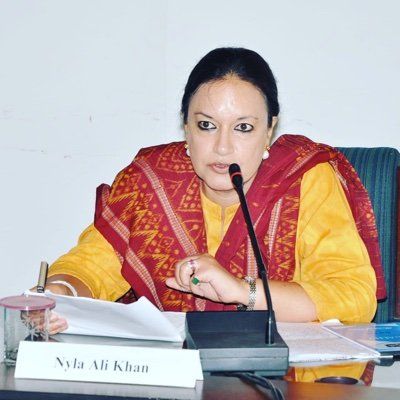How women activists can help Jammu and Kashmir make progress in democracy and peace
The partially autonomous northern Indian state of Jammu and Kashmir is a beautiful part of the world and also one of three areas of Kashmir divided into areas of control by India, Pakistan, and China and marred by a long history of violent political and ethic struggles.
The area is my homeland, and my family has been part of its history. I love it greatly.
I have been motivated to imagine the possibility of different destinies for women in a world that is not governed by the aspirations and wishes of those women.
It is challenging to reconstruct women’s lives, even those who have been visible in the public arena, because women are conditioned to wipe away their footprints and end up leaving very few traces of the kind that historical exploration would accept as legitimate.
The life of the woman I am currently writing about, Akbar Jehan Abdullah, my maternal grandmother, was so intricately tied with the political trajectory of Jammu and Kashmir that delving into the labyrinthine issue of the Kashmir conflict and the part she played in it afforded me the glimpse, into the momentous changes in the regional political structure of her era.
It also showed the ability of a conventional, religious, and progressive woman whose work was a powerful assertion of her convictions.
Not only did she represent the Srinagar and Anantnag constituencies of Jammu and Kashmir in the Indian Parliament in 1977-1979 and 1984-1989 respectively, but she was also the first president of the Jammu and Kashmir Red Cross Society from 1947 to 1951.
Obviously, an important challenge in this day and age is to create new openings for people, including women, to discuss public issues and become active participants.
Women in my homeland are gaining new rights and increasingly asserting themselves in politics and this momentous shift in traditional gender relationships opens up new possibilities for the pursuit of democracy and regional peace.
Women in civic associations and in government can lead the way toward a peaceful pluralistic democracy and support international negotiations for a sustainable peace in the region.
The best way to put the state’s house in order is by further developing responsive and pluralistic democratic government.
Historical foundations for pluralist democracy in Jammu and Kashmir were established by the revolutionary metamorphosis of the agrarian economy during the 1950s, which had groundbreaking political consequences in a previously feudal economy.
Building on the earlier gains, a pluralistic government can now ensure further economic, social, and educational gains for women and marginalized groups. Here is what the next steps should aim to do:
Women citizens should be accorded equal rights with men in all fields of national life economic, cultural, political, and in government services.
Women should have the right to work in every line of employment for terms and wages equal to those for men.
Women would be assured of equality with men in education, social insurance and job conditions, though the law should also give special protections to mothers and children.
Not just in Jammu and Kashmir, but in many parts of the world, women can play an important role in establishing a more inclusive democracy and new forums for citizen cooperation.
Female leaders can lead the way by offering new ideas, building broad-based political coalitions, and working to bridge organizational divides.
Women active in politics must aim not just to improve the position of their particular organizations but also to forge connections between the group’s agendas for conflict resolution and reconstruction of society with the strategies and agendas of other groups in the population, who have also suffered from ongoing conflicts.
In this way, women’s groups can thus pave the way for sustainable peace, universal human rights, and security from violent threats of all kinds.
There must be redress for previous violations of human rights for all groups within the state of Jammu and Kashmir. In addition, everyone needs to be open to diplomacy and peaceful negotiations to further the India-Pakistan peace process.
Dr. Nyla Ali Khan



